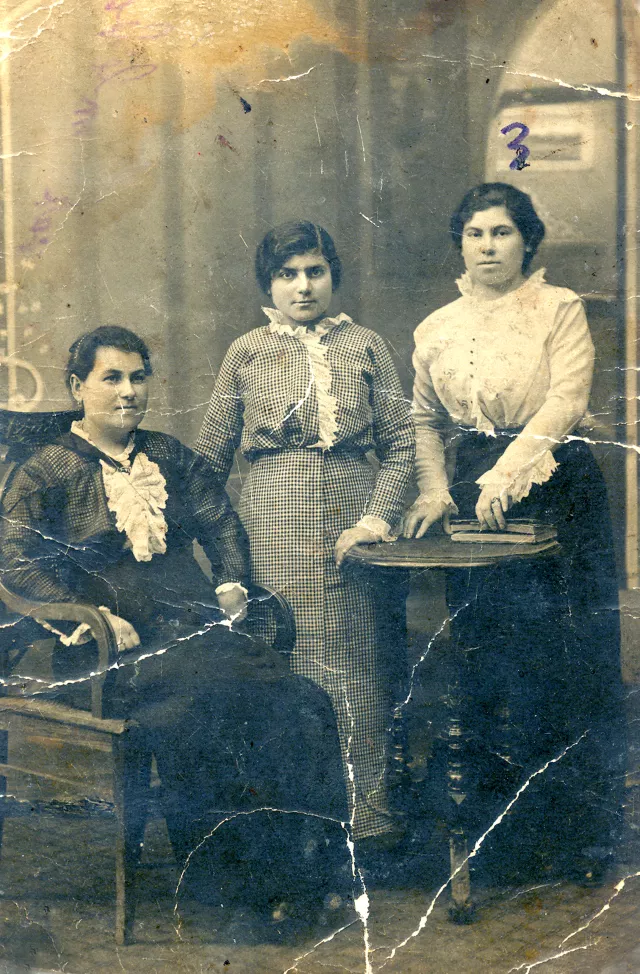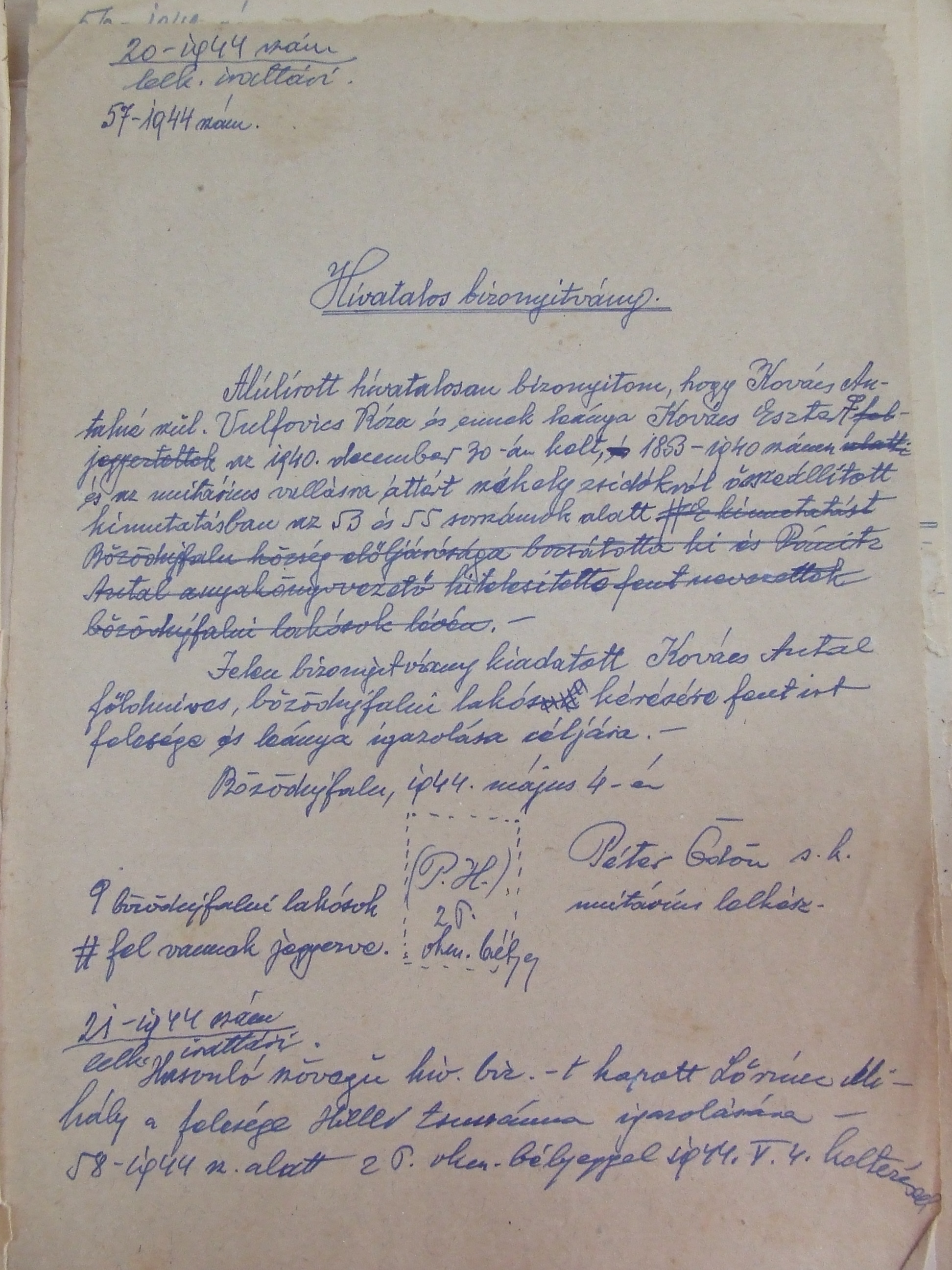A Sabbatarian Story - Róza Volfovits
(1886, Russia - 1944, Auschwitz-Birkenau)
Antal Kovács came from the Székely Sabbatarian community of Bözödújfalu (Bezidu Nou). This religion was established during the 16th century Reformation. Its followers converted to Judaism in the mid-19th century and founded their own community in Bözödújfalu, Transylvania, which was then part of Hungary. During the First World War, Antal Kovács became a POW in Russia and spent six years in Kharkov. There he met a Jewish woman named Volfovits, by whom he had a son in 1919. She died after his birth and Antal Kovács married her sister, Róza Volfovits.

Róza Volfovits (in white shirt) and her two sisters. Kharkov, c. 1920 (Source: Biographical interview with Pál Samuel Kovács https://www.centropa.org/hu/photo/kovacs-antalne-es-testverei-0/popup)
Thus Róza Volfovits came to Bözödújfalu by marriage sometime around 1921. The couple had two sons and a daughter between 1922 and 1928. Kovács's Sabbatarian ancestors converted to the Israelite religion around 1868. Thus not only his wife, but also himself and his children were Israelites. In the autumn of 1940, the Hungarian authorities occupying Northern Transylvania from Romania obliged the Sabbatarians of Bözödújfalus to 'return' to one of the Christian denominations. The vast majority of the Sabbatarians chose the Unitarian Church, but some became Calvinist and others Roman Catholic. Conversions included some who were partly or wholly of Jewish decent.
The Hungarian authorities began ghettoising and deporting the Jews of northern Transylvania in the spring of 1944. During this process, the Unitarian pastor Péter Ödön of Bözödújfalu issued certificates to Róza Volfovits on two occasions, on 4 May and 28 May 1944, stating that she had converted to Unitarianism in 1940. In order to save the family, the pastor in good faith concealed the fact that Róza and her daughter Eszter had not actually been baptised.

A certificate issued to Róza Volfovits and her daughter proving that they converted to Unitarianism in 1940. Bözödújfalu, 4 May 1944 (Source: Hungarian Unitarian Church, Kolozsvár Collection Archives, Erdőszentgyörgy - Bözödújfalu Parish, file 12)
However, the "conversion" did not provide exemption for the family. The Hungarian authorities deported the entire Kovács family to the Marosvásárhely (Târgu Mures) collection camp. Citing the Kovács’s Christian origins, László Ráduly, a Catholic parish priest, managed to get him out. Their daughter Eszter could have been released, but as she refused to leave her mother, the Hungarian authorities deported her to Auschwitz-Birkenau as well. Neither of them survived the Holocaust. Antal Kovács emigrated to Israel after the war, but soon returned to Transylvania and settled in Târgu Mures.






